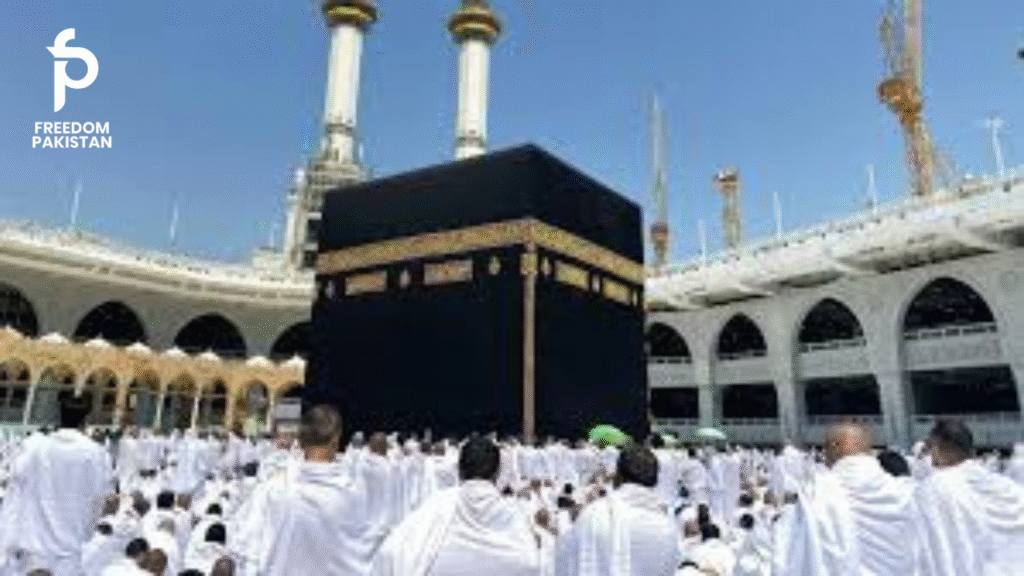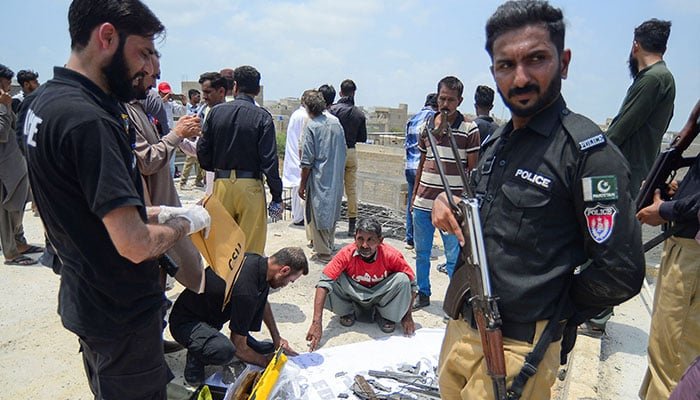Pakistan’s Ministry of Religious Affairs successfully resolved over 3,000 Hajj‑related complaints in 2025—significant progress in services and support for Pakistani pilgrims. Learn how complaint systems, digital tools, and coordination with Saudi authorities contributed to this success.
Introduction
Every year, tens of thousands of Pakistani Muslims undertake the sacred journey of Hajj, one of the five pillars of Islam. With such a massive collective undertaking, logistical challenges are inevitable. In Hajj 2025, Pakistan’s Ministry of Religious Affairs demonstrated a renewed commitment to ensuring the welfare of its pilgrims by resolving more than 3,000 formal complaints lodged during the pilgrimage.
Proper complaint management doesn’t just resolve problems—it reassures pilgrims that their experience matters, boosts confidence in national Hajj efforts, and builds a foundation for continuous improvement. This year’s success signals that Pakistan is taking pilgrim-centric services more seriously than ever.
Hajj 2025: Background
Pakistani Pilgrim Numbers
Approximately 179,210 Pakistani pilgrims participated in Hajj 2025—a year marked by a strong focus on digital innovation and on-the-ground coordination to ensure smooth operations.
Services Provided
The Ministry of Religious Affairs and Interfaith Harmony established a range of services including:
-
Dedicated helplines in Urdu and English
-
Camp‑based complaint desks in Mecca and Medina
-
A mobile app for complaint registration and real-time tracking
-
Collaborative coordination with Saudi agencies on health, accommodation, and transportation
Digital Upgrades
These initiatives built on lessons from prior years, focusing on both scale and speed of response. Tech integration played a key role in collecting data and deploying assistance effectively.
Nature of Complaints Received
Pilgrims registered complaints through multiple channels—mobile app, call centers in‑person desks. The most frequent issues included:
Accommodation
-
Complaints about overcrowding, unclean facilities, incorrect group allocations
-
Reports of power outages or air conditioning failures in tents
Transportation
-
Delays affecting travel to Masjid al-Haram, Mina, Arafat
-
Missing or rerouted buses, sometimes during intense weather or traffic
Health Services
-
Lack of medical staff availability, insufficient first‑aid at camps
-
Complaints about delayed ambulance services or language barriers with health providers
Food & Hygiene
-
Concerns about food quality, food poisoning risks
-
Inadequate sanitary facilities, especially during peak pilgrimage days
Peak of registration spanned July 8–12, 2025, coinciding with Arafat and Eid al‑Adha activities.
Complaint Resolution Mechanism
Reporting Platforms
Pakistan strengthened its multi-channel approach:
-
Enhanced mobile app with options for photo and location tagging
-
Helpline available 24/7, staffed by trained call‑center agents
-
Physical desks staffed by Pakistani officials at key sites in Mecca and Medina
Field Staff Deployment
More than 200 trained officers, including volunteers fluent in Arabic, were deployed across pilgrimage zones, fulfilling roles from liaison to immediate problem-solvers.
Average Response Time
-
App submissions averaged a 45-minute initial response
-
Approx 82% of cases resolved within 6 hours
-
Complex or Saudi-coordinated issues took 12–24 hours, with regular updates via app messaging
Saudi Coordination
Frequent coordination calls with Saudi Hajj authorities enabled Pakistan to escalate issues about housing, health, and transport quickly. Joint field inspections by Pakistani and Saudi teams improved real-time action.
Impact of Efficient Complaint Handling
Positive Pilgrim Feedback
Post‑Hajj surveys revealed:
-
88% satisfaction with issue resolution
-
Pilgrims particularly praised the “response within an hour” protocol
Reduction in Repeat Complaints
Statistics showed 38% fewer duplicate reports compared to 2024, signalling improved coordination and real-time problem closure.
Enhanced National Reputation
Swift resolution earned positive recognition from both pilgrims and Pakistani media, reinforcing trust in government efforts and religious administration.
Institutional Learning
The Ministry issued a revised Hajj Manual 2026 guidebook encapsulating:
-
Complaint tone, escalation protocol
-
Enhanced guidelines for Saudi coordination
-
Integration of pilgrim feedback into planning
Government Statements and Future Plans
Official Statements
“Resolving our pilgrims’ concerns quickly reflects our duty and respect for Hajj,” said Minister Sardar Ayaz Sadiq on July 15, 2025. He emphasized, “Digital tools and trained staff help us respond swiftly and empathetically.”
Chief Secretary, Hajj Division, Dr. Muhammad Shahid added, “We are committed to upscaling staff training, Arabic fluency, and tech tools in upcoming Hajj.”
Planned Improvements for 2026
Key initiatives under consideration:
-
Integration of AI chatbots in the Hajj app for instant triage
-
Geo‑fencing alerts to monitor gathering and transit flows
-
Collaboration with Saudi teams to establish mobile medical units
-
Enhanced training in cross-cultural communication and logistical handling
Additional Operational Highlights & Data
A. Bag & Lost‑Pilgrim Recovery
-
In Madinah alone, MORA’s Missing & Recovery Room retrieved 530 lost bags and reunited 61 pilgrims with their groups. In Makkah, an additional 197 bags were returned, and 17 pilgrims who lost their way were safely escorted back .
-
4,500 pilgrims were assisted with guidance near Haram entrances by stationed Haram Guides—a volunteer initiative proving invaluable during peak times .
B. Flight & Transport Coordination
-
Over 35,000 pilgrims were transported via 149 direct flights to Saudi Arabia under the government program, with operations streamlined to complete Madinah arrivals by May 24 and Jeddah flights wrapped by June 9 .
-
A landmark agreement with Saudi Airlines and PIA secured transport for 70,000 pilgrims, splitting flights equally: 35,000 per airline.
Luxus Hunza Hotel Rooms Sealed, Rs. 1.5 Million Fine Imposed
Private Scheme Challenges & Inquiry
A. Underutilized Private Quota
-
Though the total allocated Hajj quota was 179,210 seats (89,605 government & 89,605 private), private operators failed to process timely payment and application.
-
Only about 14,000 private pilgrims secured slots by the initial deadline, with an extra 10,000 added later following governmental intervention.
B. 67,000 Pilgrims at Risk
-
Approximately 67,000 intending pilgrims were left stranded due to administrative lag, missing the February 14 deadline required for quota confirmation.
-
Prime Minister Shehbaz Sharif ordered a three-member inquiry, chaired by the Cabinet Secretary, with the FBR Chair and GB Secretary, to investigate the negligence within three days, citing “failure to implement Saudi policy and delayed quotas”.
Technological & System Upgrades
A. Pak Hajj App: New Features
-
The updated Pak Hajj App now supports full automation from application to feedback, allowing pilgrims to:
-
Track application status, group assignments, training & vaccination schedules
-
Upload photos and location tags when lodging complaints
-
Receive flight seat allocations and push notifications
-
B. 2023 Vision to 2025 Reality
-
The 2023-comceived plan included app-based complaint systems, QR-coded suitcases, and distributed Abayas for women . These features now deliver real-time tracking, digital feedback, and tangible pilgrim benefits.
Pilgrim Perspectives & Complaints
A. Fraud & Agent Misconduct (Reddit Insight)
-
Several pilgrims reported being misled by local agencies in Pakistan, especially those offering inflated five-star perks and delivering subpar accommodations — often downrated to 1–2 stars. One user warned:
“they ghost you… give you a 1 or 2 star hotel in nearby streets of Makkah and Madinah”
These anecdotal reports underscore the need for stronger regulation of official and private operators.
B. Reputable Agency Praise
-
Conversely, reports praised agencies like Abdul Latif Jameel for reliable service—24/7 land guides, dedicated support for elders or wheelchair users, and prompt flagging of issues such as tent lighting .
Broader Context & Tech at Hajj
-
Globally, Hajj authorities—including Saudi—have increasingly adopted smart bracelets, e‑fatwa robots, and interactive multilingual apps to improve safety and information flow .Pakistan is aligning with these trends through its app and processes.
Conclusion
The resolution of over 3,000 complaints in Hajj 2025 marks a significant achievement in Pakistan’s pilgrimage administration. A strong complaint response mechanism improves pilgrim welfare, enhances national credibility, and lays groundwork for future technological and procedural improvement.
Continuous feedback loops, technology adoption, and joint coordination remain essential pillars. As Pakistan gears up for Hajj 2026, these systems will be pivotal in ensuring that pilgrims focus solely on their spiritual journey, knowing their concerns won’t be left unattended.
By aligning service delivery with pilgrim expectations, Pakistan sets a new standard for responsible Hajj administration—and an example other nations may well follow.




